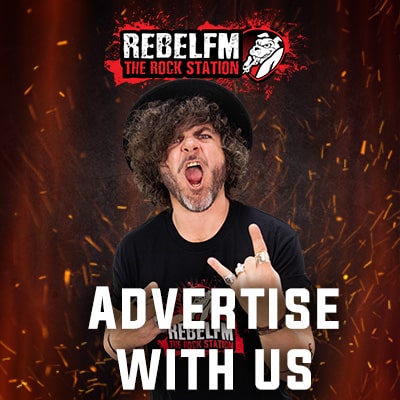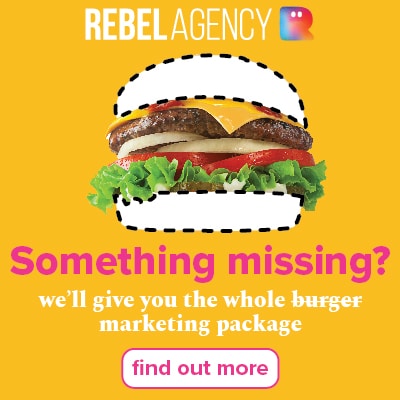SEO or search engine optimisation has changed the way websites operate. 93% of the online experience begins with a search engine, and this isn’t set to change anytime soon.
Anyone can load up a website with dazzling images, engaging content, and fancy search bars, but the most beautiful and informative website won’t necessarily mean you are going to get the traffic you need for your website.
Why build a website if your audience can’t find you online? Most often, the reason why other websites are ranking higher than yours on Google is that they are making a conscious effort to improve their SEO or they are paying Google big money to rank highest for popular search phrases (Keywords). Finding your website online is like finding your retail outlet on a street in the world’s biggest city. If you wanted to visit a store you would have to give your driver directions and the same applies to your online store – your website. SEO helps people to find you.
So how do you improve your website’s visibility to your customers? Let’s examine some popular SEO hacks to help you and to make sure that your website is optimised for search and your audience.
- Produce quality blogs
- Does your content engage your audience?
- Does it flow well?
- Do you answer your reader’s query?
- Does it reflect the personality of your brand?
- is your blog content visually pleasing? Does it have images and formatted to lead a reader through the post?
- What value does the reader get from your content? It needs to provide valuable information that resolves the reader’s query.
- Optimise page loading speed
- How will your content relate to the layout?
- How will your visitors navigate the site?
- Review HTML and CSS and remove unused or unneeded CSS or HTML.
- Review and remove unneeded and unused style sheets, and inline styles.
- Remove old, outdated code.
- Mobile optimisation
- layout
- Performance
- Accessibility
- Usability
- Human Interaction
- Social media sharing
- Find and purge broken links
- W3C Link Checker
- Screaming Frog
- SEO Spider
- Google Webmaster Tool
Content marketing is the most straight forward SEO hacks and one of the most important.
Every page on your site needs to have a unique purpose and intent for optimisation. Writing great content over and over again that is not aligned to the SEO norms is meaningless. SEO is like the content writers best friend; the better the pairing, the more profitable it is.
Yes, content is king and always will be.
The online world is very crowded and big, so like owning a store in the world’s biggest city it is important that you are noticed first otherwise your great content will never reach your target audience. In order to stand out from your competitors, you have to ask yourself what are the qualities that define good quality content? There are many factors at play when it comes to crafting quality content and for a successful blog you need to ask yourself the following questions;
Before you write a blog, you need to understand who will read your content. You need to know your readers (your customers), what drives their behavior and why they buy/ Once you know this you can create “good” content that answers their question, resolves this problem and hopefully, makes a lasting impression.
Page speed is one of the factors used in ranking algorithms according to Google. As the planet’s largest search engine and the mission to organise the world’s information and make it universally accessible and useful, you and your website need Google!. Why is website load speed so important? Firstly, in order for your visitors not to get impatient and leave before you have a chance to tell them how great you are, you need to have a fast loading website.
Isn’t that why you worked hard to have a website? The main goal of your website is to get your customers to click on your website and then inform them about your products and services and eventually sell them, online or in-store.
Google has employed page speed in its algorithm as studies reveal that faster loading websites lead to happy end-users and Google will reward you for optimizing page load speeds with a better ranking. A slow-loading website can cause a high bounce rate (the number of visitors to your website that navigates away after viewing only one page). Many people will not wait for more than a couple of seconds for a page to load and will click back to their search leaving you with a high bounce rate. A high bounce rate will also adversely affect your search rankings.
What makes a great website is changing all the time. Some people believe that when it comes to building a website, more content is better, but that is not the case. Bogging down your website with images, content, and codes that are unnecessary will slow it down.
So how can you make your website run much faster?
Follow these steps to clearly plan your site layout to help improve your page load time and increase conversions:
Mobile devices are the most commonly used internet devices and their popularity will only continue to grow. However, not all websites take into account what is needed to make their website mobile responsive. As Google rolls out its mobile-first ranking indexing, not being mobile responsive will start to cause big problems for websites.
Under the old indexing system, the search ranking was not based on the sites that mobile users actually used. If there were issues with loading, with less content, or with the site not fitting the screen, the search rankings wouldn’t reflect it, but that has now changed. It is now more important than before for your website to be mobile responsive. User experience (UX) basically refers to how your audience feels when they interact with digital offerings, be it a website, an app or even a game.
Design your site for mobile use
Here are some aspects that have a bearing on the user experience. They include, but are not limited to:
When you have a mobile responsive website that interacts positively with your customers, they will keep coming back to your site. Returning visits is important as Google will reward you with an improved ranking for providing a good end user experience.
Social media sites do not affect ranking directly and search engines like Google do not allow it but social media gives digital marketing professionals many other ways to put their businesses front and center on search engine results pages. Social media is important but do you know why social media platforms such as Google+, Facebook, Linkedin, Twitter, and Instagram are crucial? Social media channels might not directly impact your search ranking but they still have a significant impact on SEO. With the right strategies and maximising the use of social media channels, you can raise your website’s search engine ranking and increase your online visibility which in turn makes it easier for your customers to find you.
How does social media and SEO work together?
Social media sharing drives traffic to websites – Sharing your quality content on social media can garner shares, likes, and comments. It also encourages social media users to migrate to official business websites.
External link building – Every time you share content on social media, it doesn’t increase your ranking in Google automatically, but does spread your content further. Enhanced social shares mean enhanced visibility and that means that more people are likely to link back to your content.
Boost brand awareness – Social media can help expand your reach and increase the frequency that your brand or message is put in front of your potential customers. When interested searchers are looking for information about the products and services you offer, they most likely search for your company by brand or your company name rather than your industry.
Here lie the links that once lived and thrived. Now, they’re dead and can’t be used. (and Google hates dead or broken links)
Your visitors will never get a chance to see your valuable content if they’re redirected to a 404 page. It will definitely annoy your visitors, attract negative attention from Google search bots and can spell trouble for your business website. When your site is filled with broken links it hurts your SEO. The good news is, there’s a lot of tools available nowadays that can help you scan your site for these broken links.
Below are the following tool you can use to identify broken links on your site:
You can also invest in a quality marketing company to audit your site for this issue. It always pays to have a pair of human eyes looking over your site.
SEO (Search Engine Optimisation) is a complex process that can be intimidating and requires a very thorough, almost holistic approach to strengthen the overall quality of a website. These hacks just scratch the surface of what you can do to improve your Google ranking.
When all else fails, it doesn’t hurt to have an affordable SEO expert on your team. This way, you can have access to professional advice on the go.
At Rebel Agency, we specialise in everything to do with SEO and Web development. So if you’re looking for expert help with your website and content management, then give us a ,CALLtoday!
Rebel Agency is part of the Rebel Connect Group of Companies and is an independently owned Australian business. Rebel Connect also runs the Rebel FM and The Breeze network of radio stations and the trades and services guide usealocal.com.au









